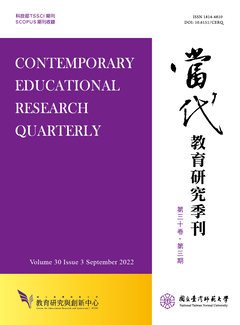

This study aims to investigate how the written formats, complexity of proofs and the types of understanding questions affect students' understanding of geometry proof. Theoretically, Duval's three levels of organizing statements - micro, local and global, are applied to assess 153 ninth graders' understanding of geometry proof. The results show (a) there was no interaction among written formats, complexity of proofs, and types of understanding questions in terms of students' understanding of geometry proof; (b) local understanding is the easiest for students; (c) the effects of the complexity of proofs on local and global understanding were statistically significant. It is noted that the generalizability of the results is limited by the task of proof texts without their corresponding propositions. The factor mixing proof steps and familiarity of propositions should be taken into account while arranging learning sequence of reading proofs. Afterward, further research is proposed in this paper.

This work is licensed under a Creative Commons Attribution-NonCommercial 3.0 Taiwan License.
Center for Educational Research and Innovation, National Tawain Normal University
162, Ho-Ping East Rd, Sec. 1, Taipei, Taiwan | Tel:+886-2-7749-3670 | E-mail: cerecerq@gmail.com
CERI | NTNU | E-mail Alerts | Open Journal System
© 2014 CERI-NTNU
